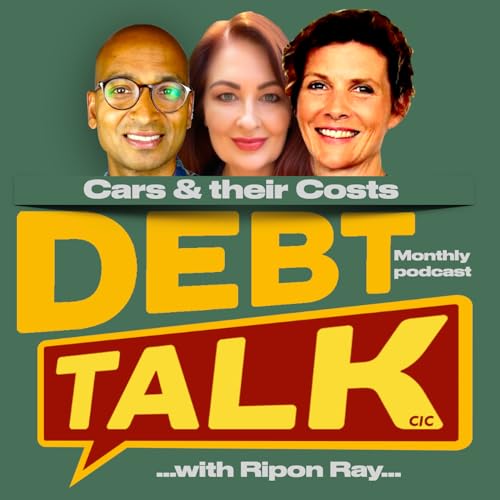January is hard.
The celebrations are over, the bills have arrived, and for many of us, savings have quietly disappeared. As we wait, often painfully, for the next pay cheque, January becomes the month of fresh starts, New Year’s resolutions, and, if we’re honest, a few broken promises.
I’m Ripon Ray, your host, and in this episode of the Debt Talk Podcast, we focus on January Financial Planning and how money is closely linked to the promises we make to ourselves at the start of the year.
To help us navigate the challenges of January 2026, I’m joined by three expert guests:
Shakira Taylor, a fitness instructor working on the frontline, shares insights on staying active and motivated beyond January. She reminds us that fitness isn’t just about quick wins; sustainable, gradual progress is what leads to lasting health and real rewards.
Joe Marley from Alcohol Change talks about Dry January, alcohol habits, and wellbeing. He shares practical tools, including the Alcohol Change app, and explains how cutting down or giving up alcohol can improve wellbeing while saving money. In fact, the average person can save up to £60,000 over a lifetime by giving up alcohol.
Nick Hill from the Money & Pensions Service connects healthy habits with healthy finances. He highlights simple budgeting tools, such as “jam jar” planning, and encourages small, manageable changes. Nick also reminds listeners that free, confidential debt advice is available through the MoneyHelper Debt Advice Locator, particularly for those struggling after festive overspending.
Our guests also share top tips for Debt Talk listeners, offering practical ways to get through January with confidence.
Coming up next: Our next episode explores “The Cost of Valentine’s, Marriage and Divorce', a timely discussion as post-New Year divorce rates begin to rise.
 2026/01/1439 分
2026/01/1439 分 2025/12/1246 分
2025/12/1246 分 2025/11/1442 分
2025/11/1442 分 2025/10/1419 分
2025/10/1419 分 2025/08/1459 分
2025/08/1459 分 2025/07/1447 分
2025/07/1447 分 2025/06/1347 分
2025/06/1347 分 34 分
34 分
